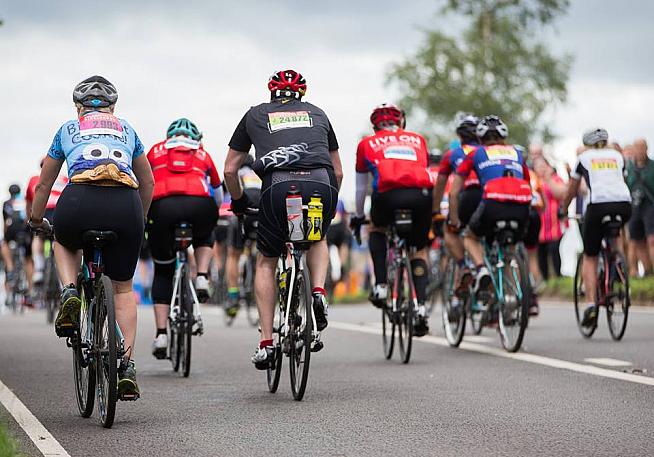I got a marketing email yesterday from Cyclist magazine - you may have received it too. "RideLondon 2024 entries are now open!" exclaimed the subject line with giddy excitement.
Great news, of course; there's just one problem. RideLondon entries actually opened on 15 August, more than 10 weeks ago.
So what, you might say; RideLondon isn't until May 2024, that's a long way off. There's still plenty of time to sell those entries.
For most events that may be true, but this is RideLondon we're talking about, the UK's flagship sportive. For the first 10 years places were like hens' teeth, with entries so sought after that they had to be allocated via lottery. Every year the forums were filled with desolate cyclists who'd received the dreaded "commiserations" magazine mailed to those who failed to gain entry - sometimes year after year.
That changed ahead of the 2023 edition when the organisers switched it up, releasing some entries on general sale before moving to a ballot to shift the remainder. And now, for 2024, all 10,000 places were released for general sale in August.
Based on the demand for past editions, you'd expect all 10,000 places to have sold out within days, if not hours. So what's gone wrong?

In the case of RideLondon, there may be a couple of factors at play. The first is the change in route, from the classic Surrey Hills course - you know, Box Hill, Leith Hill, Trafalgar Square, sprint finish on The Mall - to a much flatter, and arguably less appealing trek through London's eastern suburbs into Essex.
Still, the event retains its main appeal of riding on closed roads, and there is surely an appetite for fast-paced flatter routes. Who wouldn't want the chance to lay down a personal best over 100 miles of traffic free roads, with plentiful wheels to latch onto along the way?
The second factor might be cost. Entry to RideLondon costs £99 this year (we'll ignore the £275 "VIP entry" option). Back in 2015, it was £48.
That's an increase of over 100% in eight years: a significant jump, even allowing for inflation.
In these difficult economic times, have the RideLondon organisers finally reached the limit of cyclists' appetite and ability to pay top dollar for a day on the bike?
RideLondon is far from the only event to capitalise on its popularity by raising prices. Take the Tour of Flanders for example, the sportive version of the Ronde van Vlaanderen, held each year the day before the pro race.
When I first rode Flanders back in 2015, I marvelled at the value for money it offered. Entry cost just €30, which at the time was less than entry to a typical UK sportive from the likes of UK Cycling Events or the (now sadly departed) Evans RideIt series.
It was a refreshingly egalitarian approach, I thought, in keeping with our European cousins' more enlightened view of cycling as an activity accessible for everyone, not just the well-off.
Fast forward to the present day, and entry to Flanders will set you back up to €110 for the long route. Early-bird rates are available, rising in tiers as more riders enter, but that's still a massive increase.

The dramatic inflation in prices has not gone unnoticed by sportive fans; you'll find plenty of grumbling in the comments on social media posts from the big events.
And yet, some events still seem to retain their cachet despite rising prices and the cost-of-living crisis. Take Mallorca 312 for example: even with a fluffed launch that saw the website crash for 24 hours, places for the 2024 edition sold out almost instantly when they reopened the following day.
And this for an event that many would say has expanded beyond its capacity to cope, with long delays at the start pens, angry scenes as delayed riders are diverted at the course cut-offs and chaos at the feed stations.
Entry to Mallorca 312 now costs €115 by the way. Back in 2017 it was just €65.
For the top-tier European events like La Marmotte and L'Etape du Tour, we expect entries will continue to sell out even in the face of rising ticket prices. But for smaller event organisers here in the UK, the problems faced by RideLondon may be a warning sign.
If even RideLondon is struggling to meet its quota, what does that mean for everyone else?
0 Comments





